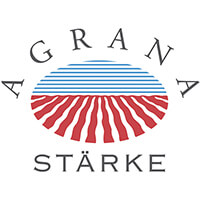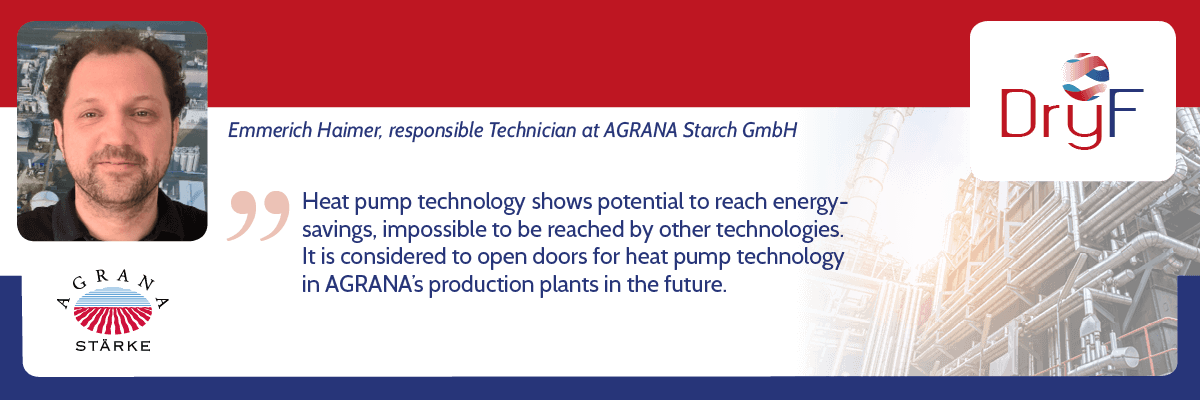

1. Can you introduce yourself please: what is your name and position/function in the company?
Emmerich Haimer, responsible for technical project development and realization with special emphasis on energy efficiency/energy savings in the Pischelsdorf plant of AGRANA Starch GmbH.
2. What are your products and who are your products´ buyers? To what extent would you say they care about environmental matters of production processes of your products?
Bioethanol, food grade CO2, animal feed, wheat starch, wheat gluten and wheat bran for fuel industry, paper industry and food industry. All but especially food products have to be produced in a sustainable way in order to meet customers’ acceptance. Thus the bio refinery-concept, the full utilization of feedstocks for food and energy uses, was and is the driving force behind all actions in the plant in Pischelsdorf.
3. What challenges are you currently facing in terms of energy?
According to Austrian legislation, namely Energieeffizienzgesetz, energy consumption in the industry sector has to be monitored thoroughly and reduced significantly. We expect that the respective aims will get higher in the future and thus the efficient utilization of energy is a major task in all planning and optimization actions of AGRANA.
4. What challenges are you currently facing in terms of energy-efficiency technology?
In principle, many efficiency measures have already been taken and thus access to new technology is of major importance. The lack of experience in this new technology in the food and feed industry is in many cases an obstacle for further implementation of such systems.
5. What is the motivation for installing Dryficiency industrial heat pumps in your plant?
The already mentioned obstacle of missing experience both on the industry and the heat pump manufacturing side limits the use of heat pump technology in industry. On the other side this technology shows potential to reach energy-savings impossible to be reached by other technologies. Thus, the DryFiciency project is considered to help gain more experience to even more improve the production processes in terms of sustainability and energy efficiency.
Project Coordinator
Veronika Wilk
AIT Austrian Institute of Technology GmbH


| Cookie | Duration | Description |
|---|---|---|
| cookielawinfo-checkbox-analytics | 1 year | This cookies is set by GDPR Cookie Consent WordPress Plugin. The cookie is used to remember the user consent for the cookies under the category "Analytics". |
| cookielawinfo-checkbox-necessary | 1 year | This cookie is set by GDPR Cookie Consent plugin. The cookies is used to store the user consent for the cookies in the category "Necessary". |
| cookielawinfo-checkbox-others | 1 year | This cookie is set by GDPR Cookie Consent plugin. The cookie is used to store the user consent for the cookies in the category "Others". |
| cookielawinfo-checkbox-performance | 1 year | This cookie is set by GDPR Cookie Consent plugin. The cookie is used to store the user consent for the cookies in the category "Performance". |
| viewed_cookie_policy | 1 year | The cookie is set by the GDPR Cookie Consent plugin and is used to store whether or not user has consented to the use of cookies. It does not store any personal data. |
| Cookie | Duration | Description |
|---|---|---|
| CONSENT | 16 years 4 months 8 days 15 hours 5 minutes | These cookies are set via embedded youtube-videos. They register anonymous statistical data on for example how many times the video is displayed and what settings are used for playback.No sensitive data is collected unless you log in to your google account, in that case your choices are linked with your account, for example if you click “like” on a video. |
| IDE | 1 year 24 days | Used by Google DoubleClick and stores information about how the user uses the website and any other advertisement before visiting the website. This is used to present users with ads that are relevant to them according to the user profile. |
| VISITOR_INFO1_LIVE | 5 months 27 days | This cookie is set by Youtube. Used to track the information of the embedded YouTube videos on a website. |
| YSC | session | This cookies is set by Youtube and is used to track the views of embedded videos. |
| yt-remote-connected-devices | never | These cookies are set via embedded youtube-videos. |
| yt-remote-device-id | never | These cookies are set via embedded youtube-videos. |